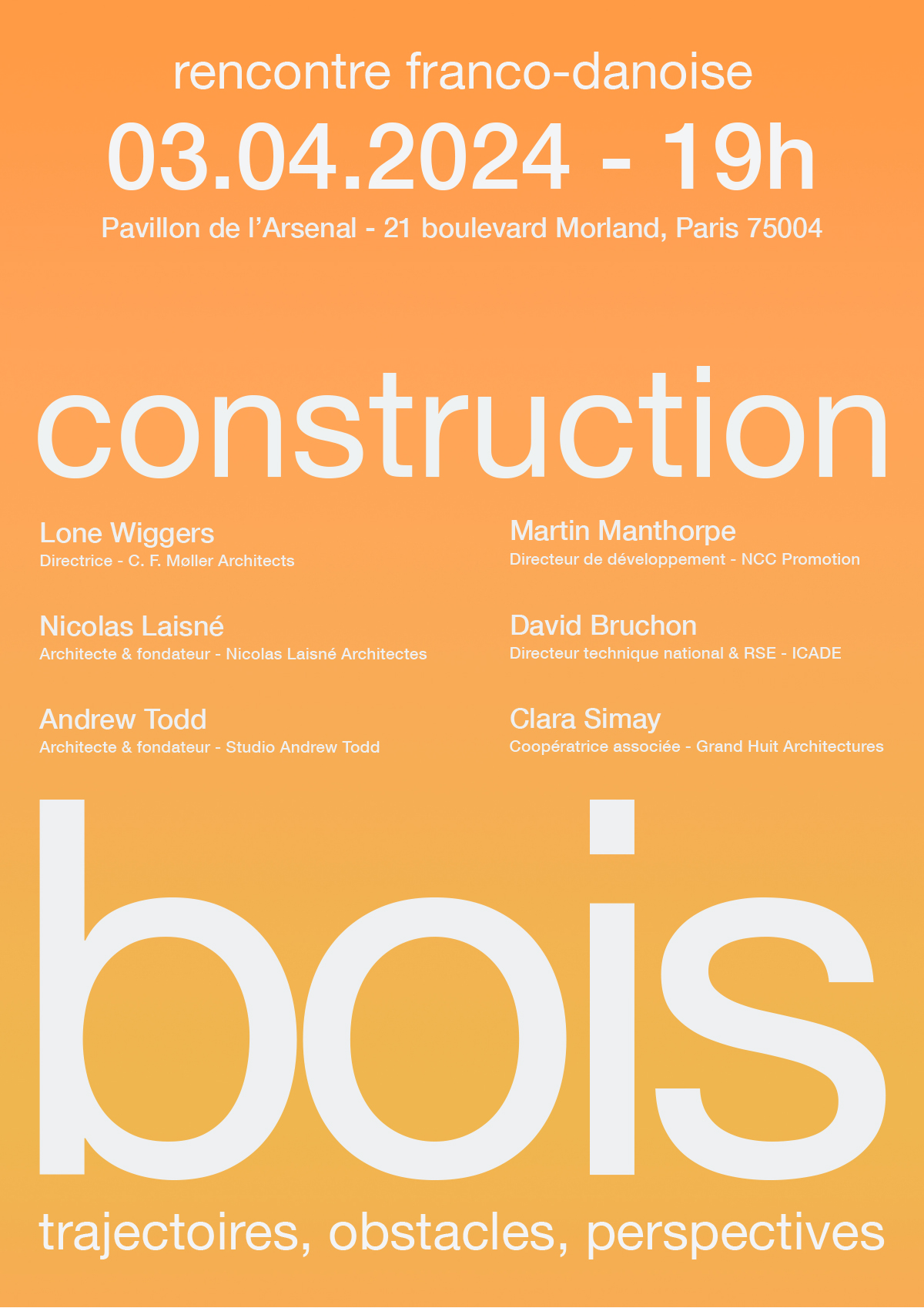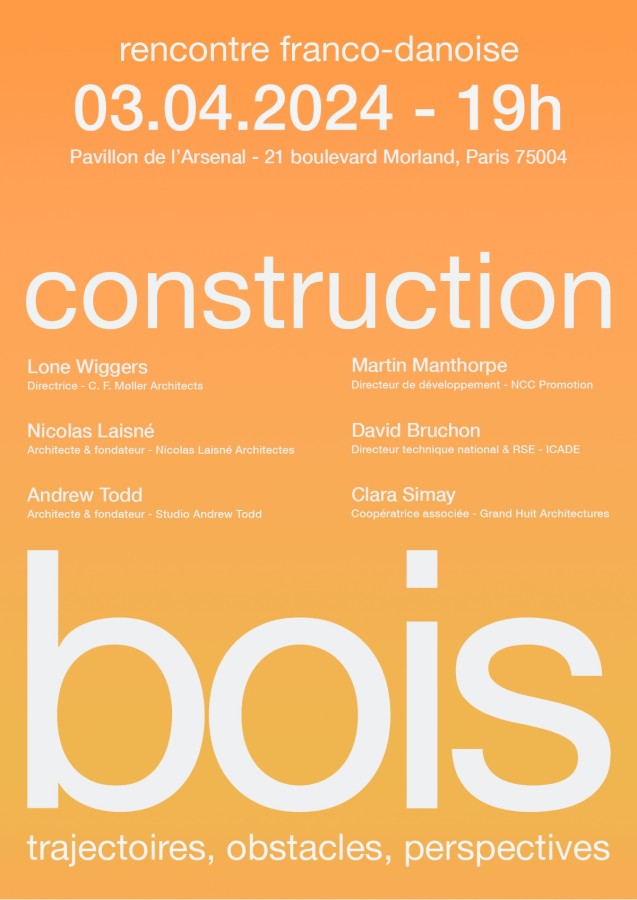Political hopes for decarbonation ride to no small extent on the rapid uptake of wood construction in replacement of impactful materials, the built environment as a whole being responsible for up to 40% of global CO2 emissions.
France and Denmark have ambitious legislative CO2e-saving objectives, and some companies (like ICADE and NCC, represented in this meeting) are promising to go beyond regulatory requirements.
On the other hand, there are great difficulties from education and know-how, from regulatory obstacles, and from the building and real estate market -which is economically biased in favour of impactful materials.
Building in wood therefore makes people talk, work and organise differently, very often completely changing habits, trajectories and team structures.
This meeting will showcase some of the international actors in the sector trying to find new ways of working together to meet these challenges. They are architects, developers, and architect-developers; they are French, Franco-British and Danish, facing the same problems with different starting points, different tools, different challenges and different traditions. In the space of 90 minutes they will lay out these questions and find ways to develop hope and constructive pathways towards the unavoidable shared destination or carbon reduction.
On the other hand, there are great difficulties from education and know-how, from regulatory obstacles, and from the building and real estate market -which is economically biased in favour of impactful materials.
Building in wood therefore makes people talk, work and organise differently, very often completely changing habits, trajectories and team structures.
This meeting will showcase some of the international actors in the sector trying to find new ways of working together to meet these challenges. They are architects, developers, and architect-developers; they are French, Franco-British and Danish, facing the same problems with different starting points, different tools, different challenges and different traditions. In the space of 90 minutes they will lay out these questions and find ways to develop hope and constructive pathways towards the unavoidable shared destination or carbon reduction.




